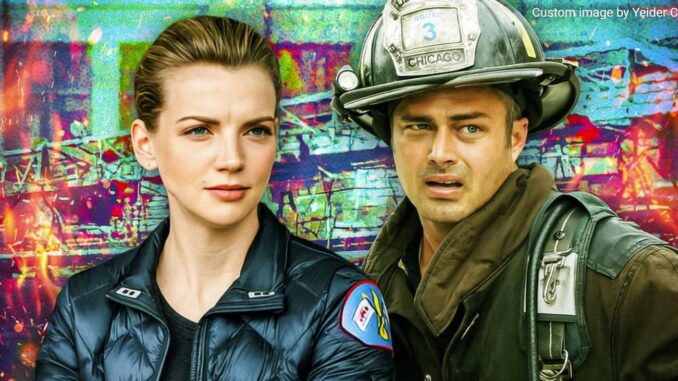
The Dual Nature of Chicago Fire
When it comes to NBC’s drama lineup, Chicago Fire has consistently stood tall as the network’s flagship show. Its gripping storylines, high-octane rescue missions, and deeply human moments have earned it a loyal fanbase and impressive ratings. But here’s the twist: while Season 13 may still dominate the charts, cracks are forming beneath the surface. What’s causing this silent decline? Let’s dig in.

The Legacy of Chicago Fire
How Chicago Fire Became NBC’s Crown Jewel
Chicago Fire debuted in 2012, quickly igniting a passionate fanbase. Its ability to blend heart-stopping action with personal drama made it a standout.
A Formula That Worked (Until Now)
For years, the show thrived on its perfect mix of:
- Intense fire and rescue scenes.
- Relatable interpersonal drama.
- Authentic depictions of heroism.
This formula turned it into a juggernaut in the world of procedural dramas.
What Makes Season 13 Different?
The Ratings Are Strong, But Fan Sentiment Is Fading
Numbers don’t lie—Season 13 still pulls in millions of viewers. However, fan forums, social media, and even Reddit threads tell a different story.
Overreliance on Familiar Tropes
Has the spark fizzled out? Season 13 leans heavily on predictable storylines, recycling conflicts that long-time fans have seen before.
Key Characters Are Missing
The absence of beloved characters has left a noticeable void. Long-time viewers miss the depth these personalities brought to the show.
New Faces, Mixed Reactions
While new characters often breathe fresh air into a series, the additions in Season 13 have failed to resonate with audiences.
Plotlines That Couldn’t Stand the Heat
Lackluster Villains
Villains make or break a show, and Season 13’s antagonists lack the complexity that earlier seasons delivered.
Unrealistic Firefighting Scenarios
Fans have called out certain scenes as overly dramatic or far-fetched, pulling them out of the immersive experience.
Where’s the Character Growth?
Without meaningful arcs, even the most beloved characters can feel stagnant—and that’s exactly what’s happening here.
The Role of Writing in the Downturn
Are the Writers Playing It Too Safe?
In an effort to maintain ratings, Season 13 seems reluctant to take risks. But playing it safe often translates to boring.
The Dialogue Feels Flat
Gone are the sharp, witty exchanges that once defined the show. Now, conversations often feel forced or clichéd.
Production Challenges Behind the Scenes
A Strain on the Budget?
Some fans speculate that budget constraints have led to weaker special effects and limited location shoots.
The Writer’s Strike Ripple Effect
The recent industry strikes may have disrupted the creative process, leading to hurried scripts and underdeveloped storylines.
How Chicago Fire Can Reignite Its Flame
Bring Back Fan Favorites
Characters like Severide and Casey brought emotional depth. Their return—or at least a satisfying arc closure—could win fans back.
Focus on Fresh, Gritty Storylines
Audiences crave authenticity. Exploring untapped aspects of firefighting or addressing current social issues could provide that spark.
Invest in New Writers
A fresh perspective could help rejuvenate the storytelling. Bringing in talented writers with bold ideas might be the solution.
Improve Character Development
Give audiences a reason to care by delving deeper into the personal lives and struggles of the firehouse team.
Can Chicago Fire Turn Things Around?
While Chicago Fire remains NBC’s top-rated drama, Season 13’s shortcomings are hard to ignore. From recycled tropes to underwhelming character arcs, the show is at a crossroads. But with the right changes, it can recapture its former glory. After all, a fire is only out when no embers remain—and Chicago Fire still has plenty left to burn.
